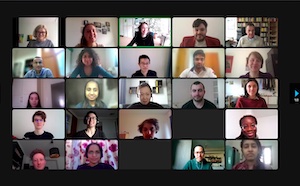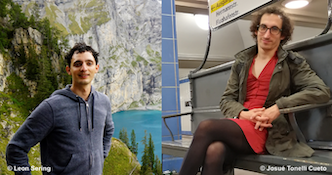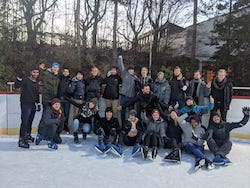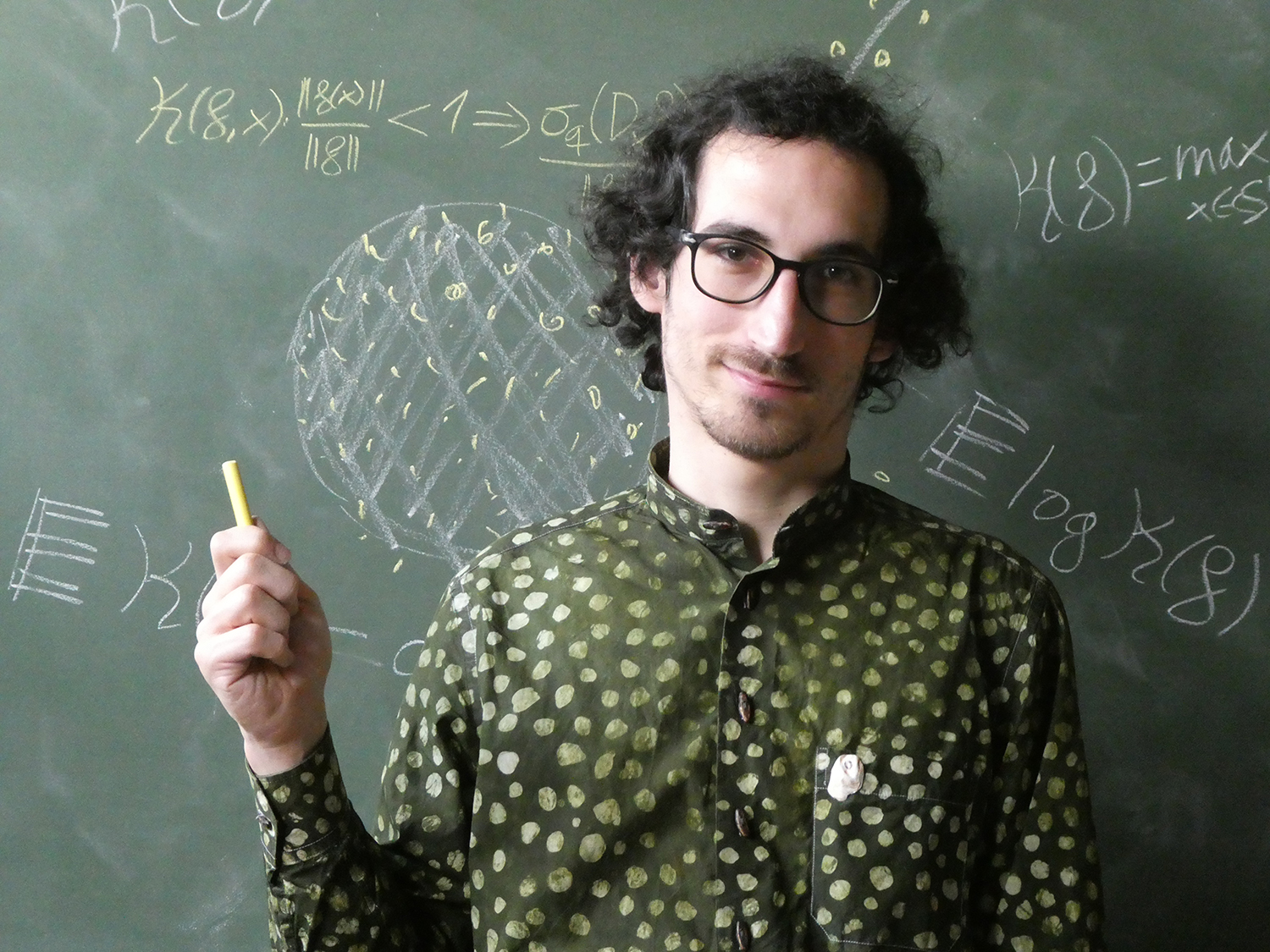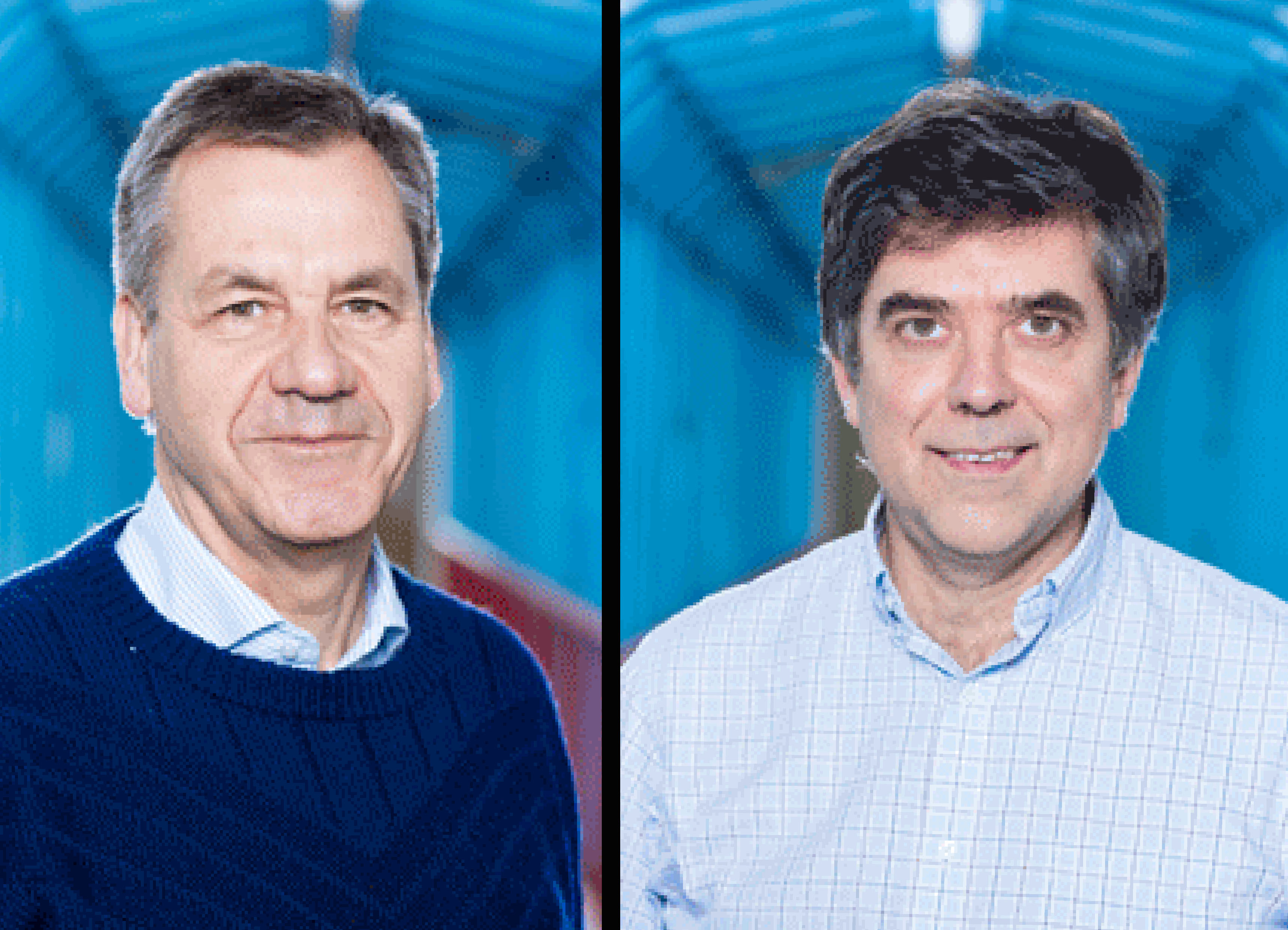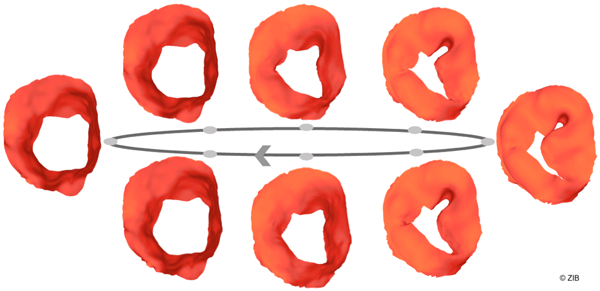
|

Lizaveta from Belarus

Sorelle from Cameroon

Sofía from Colombia

Martha from Uganda

Sophia from the US

Li Li from China

Ángel from Spain

Yoanna from Bulgaria

Abhinav from India

Dragana from Serbia

Alexander from the United Kingdom

Simona from Bulgaria

Efstathia from Greece

Evgenia from Russia
BMS Days and BMS Student Conference: 21-25 February 2022Usually, selected BMS applicants are invited to travel to Berlin to participate in the BMS Days – an important annual BMS event to recruit promising young scientists. However, due to the ongoing pandemic, the BMS Days took place online for the second time, from 21-22 February 2022. This year’s online format presented new activities in a mixture of zoom talks, poster sessions, and virtual interactive encounters via the meetingland event platform. The purpose of the BMS Days was only for the applicants to get to know the BMS. The invited applicants were introduced to the graduate school’s program and had the opportunity to ask questions about living and studying in Berlin.
40 Phase I and 4 Phase II applicants from 15 countries attended in different time zones and therefore in two groups. On the first day, the students received an overview of the BMS program and the students’ life in Berlin. This was followed by group meetings where applicants had the chance to ask the BMS students, faculty members, and office staff questions in a smaller, more informal settings. To conclude the day, the BMS Student Representatives arranged an online game. The second day gave an insight into different mathematical research topics. The lectures were given by Claudia Schillings (currently at the University of Mannheim), who will start as the new MATH+ professor at FU Berlin in March, on “Uncertainty Quantification and Inverse Problem” and Thomas Walpuski of HU Berlin on “Invariants of manifolds arising from partial differential equations”. Both talks were preceded by the student-run “What is…?” seminars to give the audience a basic introduction. Afterwards, the applicants had the chance to meet BMS postdocs and PhD students in a poster session and learn about their research experiences. As always, the BMS Days were followed by the BMS Student Conference from 23-25 February. The main goals of the Student Conference are to connect both current and prospective students and help prospective students get to know the mathematical landscape in Berlin and the social environment at the BMS. Additonally, two invited talks were given by Chris Wendl (HU Berlin) and Peter Schröder (Caltech). Despite the great virtual experiences and opportunities to get to know each other, the BMS hopes to welcome the next group of applicants in person again in 2023. MATH+ Dissertation Awards 2020In cooperation with the Einstein Foundation Berlin, the Berlin Mathematical School (BMS) of the Cluster of Excellence MATH+ awards up to three annual prizes for outstanding dissertations to BMS graduates. We are delighted to announce that the first MATH+ Dissertation Awards have been presented to Dr. Leon Sering and Dr. Josué Tonelli Cueto. Congratulations!
Both award winners graduated from Technische Universität Berlin as members of the Berlin Mathematical School (BMS), the graduate school of MATH+. In 2017, Leon Sering moved to Berlin for his doctorate. Under the supervision of Martin Skutella, he was part of the COGA research group (Combinatorial Optimization & Graph Algorithms) and became a member of the Berlin Mathematical School (BMS). After completing his doctorate with Summa Cum Laude based on his thesis “Nash Flows Over Time” and his oral defense in 2020, Leon Sering is now working as a postdoctoral researcher at ETH Zurich in Rico Zenklusen's group. Josué Tonelli Cueto joined the BMS in 2014 as a Phase I student. In 2017, he received a grant from the Einstein Foundation for his doctoral studies, supervised by Peter Bürgisser (TU Berlin) and Felipe Cucker (City University of Hong Kong). In 2019, he was awarded the doctoral degree from TU Berlin with Summa Cum Laude for his thesis on “Condition and Homology in Semialgebraic Geometry” and oral defense. Moreover, his dissertation won the 3rd Prize in the Tiburtius Prizes 2020 of the State of Berlin. Currently, Josué Tonelli Cueto has a postdoc position at INRIA Paris and the IMJ-PRG under the mentorship of Fabrice Rouillier and Elias Tsigaridas. Read more about the two award winners and their excellent dissertations New BMS Student Representatives 2024Each year in November, the BMS students elect a new team of BMS Student Representatives for one year. We are delighted to announce this year’s new team: Sophia Bugarija, Apratim Choudhury, Fawzy Hegab, Lea Strubberg and Bálint Zsigri. The new team will start their term in December, while the recent BMS Student Representatives - Gerard, Saraí, Owen, Duc, Nicolas and Berk - are busy organizing the BMS Student Conference 2024 (to take place on 21 - 23 February 2024). In general, the BMS Student Representatives have two main tasks: They serve as a contact between the BMS students and the BMS administration and help BMS students to connect with each other. In addition, they represent the BMS students on various official committees and can voice students' concerns and suggestions there. The representatives try to notice needs and also organize an annual survey to find out about the issues and concerns of the BMS students. To help BMS students get to know each other and provide opportunities for networking, they offer a wide range of activities like At the end of the winter semester, the team is also in charge of organizing the annual BMS Student Conference, right after the BMS Days. You can contact the BMS student representatives at <This email address is being protected from spambots. You need JavaScript enabled to view it.>. New BMS Student RepresentativesEach year in November, the BMS students elect a new team of BMS student representatives for one year. We are delighted to announce this year’s new team: Aizhan Issagali, Coco Bögel, Dante Luber, Lenny Leass, Margarita Kostré, and Marwa Zainelabdeen. The new team will start their term in December, while the recent BMS student representatives - Andrei, Paramjit, Sandro, Sofía, Tatiana, and Vira - will still be responsible for the Career Day on 10 December 2021 and for the student conference in 2022. In general, the BMS student representatives have two main tasks: They serve as a contact between the BMS students and the BMS administration and help BMS students to connect with each other. In addition, they represent the BMS students on various official committees and can voice students' concerns and suggestions there. The representatives try to notice needs and organize an annual survey of BMS students. To help BMS students get to know each other and provide opportunities for networking, they offer a wide range of activities like BMS students ice-skating | © Vira Raichenko At the end of the winter semester, the team is also in charge to organize the annual BMS student conference, right after the BMS Days, You can contact the BMS student representatives at <This email address is being protected from spambots. You need JavaScript enabled to view it.>. Honoring Jürg KramerMATH+ takes this opportunity to wish Jürg Kramer all the best for a happy 65th birthday! His outstanding commitment to Berlin mathematics and to young mathematicians within MATHEON, the Berlin Mathematical School (BMS), DZLM and MATH+ make him one of our most highly valued members. 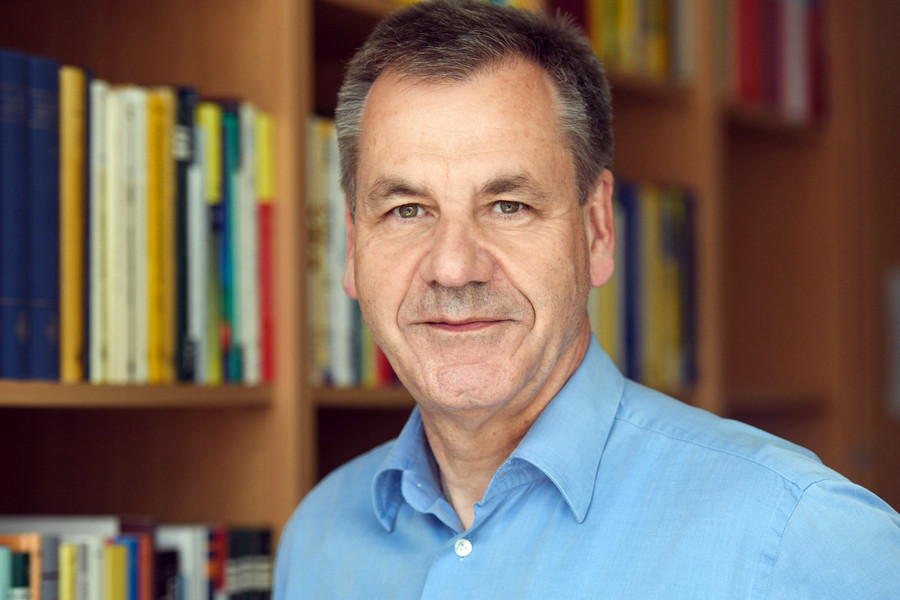
Born in Switzerland on 3 June 1956, he started his mathematical career at the University of Basel, where he got his diploma in mathematics with minors in physics and astronomy in 1980 and received his doctorate under Martin Eichler in 1985. Postdoc positions took him to the Max Planck Institute for Mathematics in Bonn, to Harvard University, the MSRI, Universität Wuppertal, and to ETH Zurich, where he completed his habilitation in 1993. In 1994, he accepted the offer of a professorship at Humboldt-Universität zu Berlin (HU Berlin). After his arrival in Berlin, Jürg Kramer soon took on essential leadership roles. He was deputy director and director of the Institute of Mathematics at HU Berlin from 1998 to 2008. A member of the DFG Research Center Matheon since its founding in 2002, he served on the MATHEON Executive Board from 2007 to 2014. He was also one of the founding fathers of the Berlin Mathematical School (BMS) and has served as chair or co-chair since 2006. In 2013, he was one of the initiators of the Einstein Center for Mathematics ECMath, where he also served on the Executive Board. From 2013 to 2014, Jürg Kramer served as President of the German Mathematical Society (DMV). He is a member of the European Mathematical Society, the Academia Europea, Acatech, and INNOMATH – a European initiative to support highly gifted high school students. 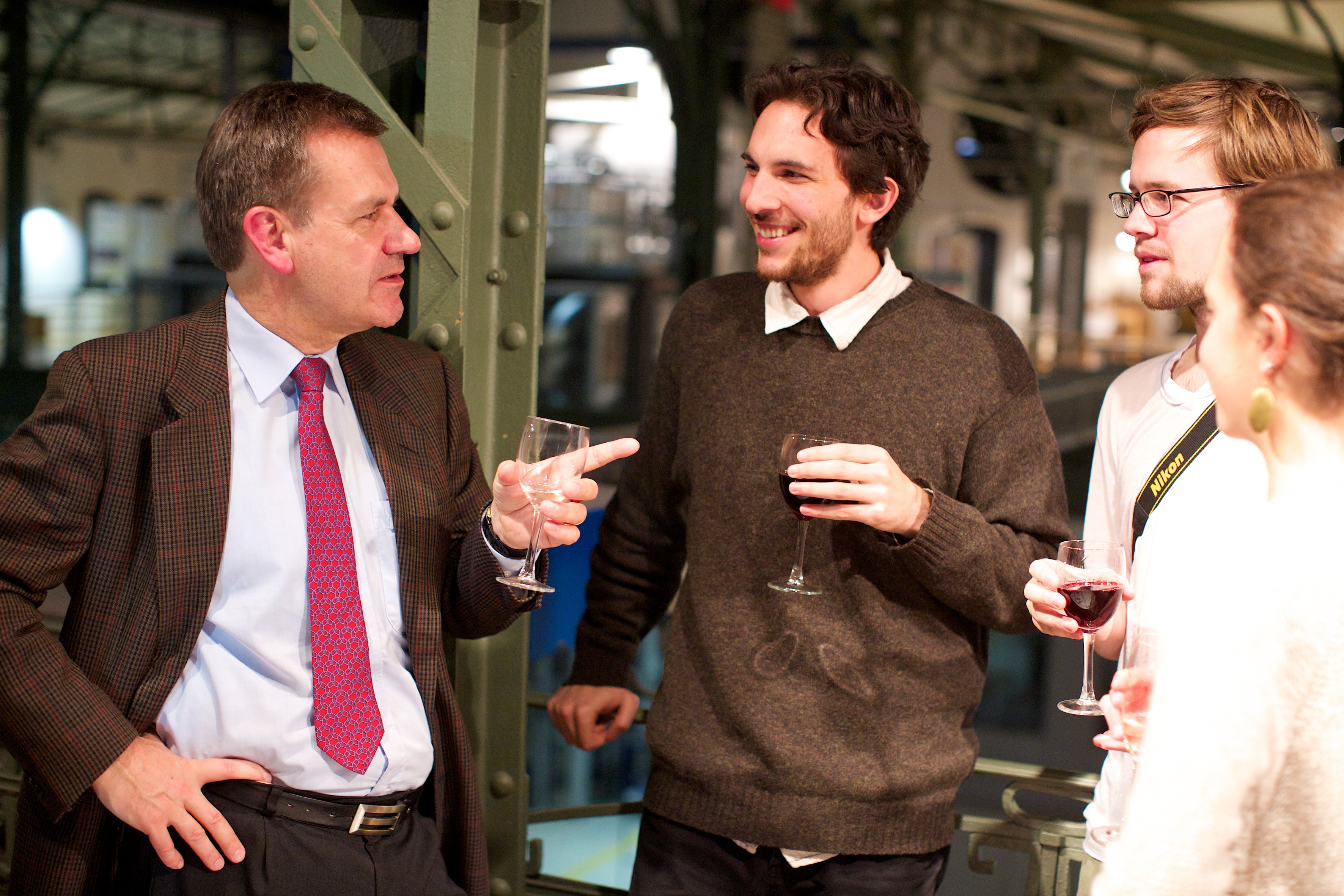
Throughout his career, Jürg Kramer has been devoted not only to mathematics itself but also to the education and training of mathematics teachers and the advancement of mathematically talented and interested school pupils, students, and teachers – from elementary schools to doctoral researchers. Moreover, his research group aims to make current mathematical developments accessible to the public at large. This commitment is expressed in his engagement in the Berlin network of STEM schools at HU Berlin (Berliner Netzwerk mathematisch naturwissenschaftlicher Schulen) as well as his support for the “Mathematical Kangaroo” (Känguru der Mathematik), the largest international mathematics competition for school children, which is based at the Institute of Mathematics at Humboldt-Universität zu Berlin. In 2010, a group of experts convened by the Deutsche Telekom Foundation (DTS) proposed a national advanced training center for mathematics as an important building block in its recommendations on Mathematik entlang der Bildungskette (“Mathematics along the educational chain”). As a result, the DTS issued a call for applications providing funding for five years to establish such a center. Based on his project Mathematik anders machen (“Doing Mathematics Differently”) Jürg Kramer organized a consortium of universities, which submitted the winning proposal. Thus, the Deutsches Zentrum für Lehrerbildung Mathematik (DZLM) was founded in October 2011. Jürg Kramer has been the Director of DZLM since the beginning and saw the DZLM find a permanent home as part of a new department Fachbezogener Erkenntnistransfer (“Subject-Specific Transfer of Knowledge”) of the Leibniz Institute for Science and Mathematics Education (IPN) Kiel in 2020. He is now director of the department. The success story of DZLM would have been impossible without Jürg Kramer’s experience in large collaborative projects like MATHEON, BMS, ECMath, and MATH+, his strong commitment, his excellent networking and communication skills and not least at all his personality and respectful attitude to other people. In addition to his numerous engagements, Jürg Kramer is also an outstanding researcher, with interests in number theory, automorphic forms, and arithmetic geometry. He chaired two DFG Research Training Groups Arithmetic and Geometry (2004-2009) and Moduli and Automorphic Forms (2012-2016). Anna von Pippich elaborates on Jürg Kramer’s research. 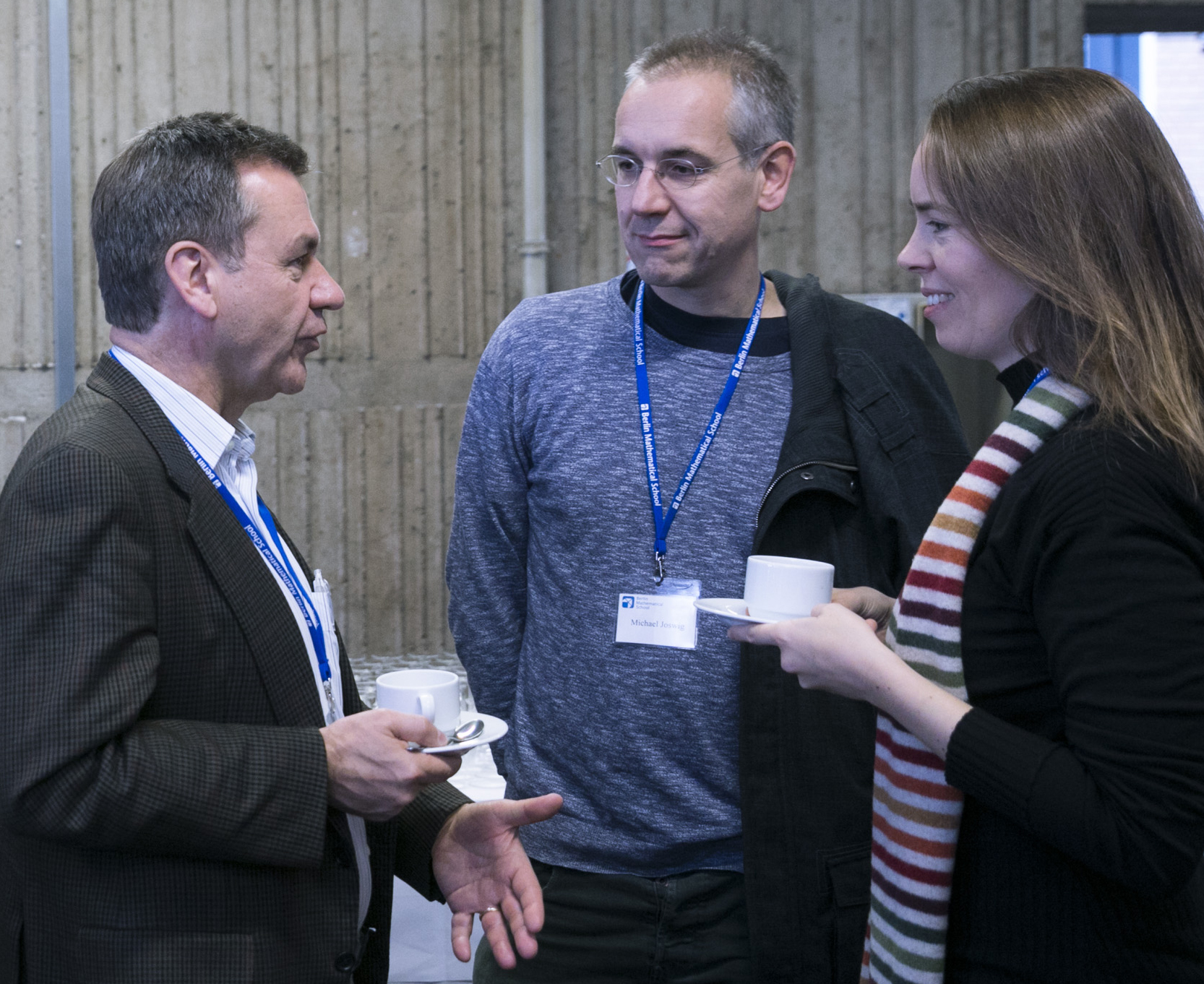
Last but not least, Jürg Kramer is a key member of the Berlin Mathematics Research Center MATH+ and contributed an important part to the successful application for MATH+ in the framework of the German Excellence Strategy. With all his energy and commitments, Jürg Kramer has significantly contributed to the shape of the mathematical landscape in Berlin and has helped to make it an internationally attractive destination for study and research. Due to his efforts, there are many mathematicians around the world who owe their education to Berlin mathematics! Dear Jürg, MATH+ wishes you a happy birthday and we look forward to working together on many more activities!
Anna von Pippich on Jürg Kramer’s Research
ERC Advanced Grant for Faculty Member Bruno KlinglerOn 22 April 2021, the European Research Council (ERC) announced which innovative research projects will be funded by the ERC Advanced Grant for established researchers. Out of 2678 proposals from across Europe and all scientific disciplines, only 209 projects (8%) were approved; these projects will be funded with in total 507 million euro over a five-year period. The project “Tame geometry and transcendence in Hodge theory” (TameHodge) by Bruno Klingler will be funded by the ERC with more than 1.8 million euro. The project plans to attack fundamental questions in Hodge theory using tools coming from mathematical logic.
Recent work of Prof. Klingler and his collaborators has shown the emergence of a spectacular link between Hodge theory and tame geometry. Tame geometry, whose possibility was suggested by Grothendieck in the 1980s and developed by logicians under the name o-minimal geometry, studies structures where every definable set has a finite geometric complexity. The goal of the project TameHodge is to show that moderate geometry is the natural framework for Hodge theory—with major applications to the transcendence of periods, atypical intersections, and non-abelian Hodge theory. Since 2017, Bruno Klingler is professor for Algebraic Geometry at Humboldt-Universität zu Berlin; as such he is one of 20 Einstein professors. Furthermore, Prof. Klingler is a MATH+ member and a faculty member of the Berlin Mathematical School. Before moving to Berlin, Bruno Klingler was a full professor at the Institut de Mathématiques de Jussieu-Paris Rive Gauche (IMJ-PRG), Université Paris, as well as assistant professor at University of Chicago and Yale University. Read more: MATH+ press information in English and German.
Two BMS Alumni receive Berlin’s Tiburtius awards 2020We are delighted to announce that two alumni of the Berlin Mathematical School (BMS) were among this year's Tiburtius award winners for their excellent dissertations. Josué Tonelli Cueto received the third prize for his dissertation on "Condition and Homology in Semialgebraic Geometry". He completed his PhD under the joint supervision of Peter Bürgisser and Felipe Cucker (City U Hong Kong) and graduated from TU Berlin in 2019 with summa cum laude.
Marcin Lara, who graduated in 2019 from Freie Universität Berlin was awarded the recognition prize for his dissertation on "Homotopy Exact Sequence for the Pro-Étale Fundamental Group" under the supervision of Hélène Esnault. Each year, the State Conference of Rectors and Presidents of Berlin's Universities (Landeskonferenz der Rektoren und Präsidenten der Berliner Hochschulen LKRP) awards three prizes and three recognition awards to doctoral students at Berlin universities for outstanding dissertations. The prize is named after Professor Joachim Tiburtius, who was Senator for Education in Berlin from 1951 to 1963. Information about the Tiburtius Prize. Eligible for nomination are the professors of Berlin universities. Press announcement (in German) Call for Application: BMS Dirichlet Postdoc FellowshipThe Berlin Mathematics Research Center MATH+ and the Berlin Mathematical School (BMS) invite applications for the Dirichlet Postdoc Fellowship starting in Fall 2023. This two-year position is open to promising young mathematicians who will have completed their PhD degree by 30 September 2023 and want to pursue their own research in one of the eight broad research areas of mathematics covered by the Berlin Mathematical School. The competitive full-time salary includes health insurance. Fellows are expected to teach one semester course per year, typically in English at the graduate level. Applications from well-qualified individuals, especially women, are highly encouraged. Application deadline: 1 December 2022 (23:59:59, Berlin time, UTC +1 hour) Jürg Kramer New BMS ChairJürg Kramer, professor of mathematics at Humboldt-Universität zu Berlin (HU), is the new chair of the Berlin Mathematical School (BMS). Kramer took up his post on 13 November 2020 in accordance with the rotating chairmanship, and succeeds John M. Sullivan of Technische Universität Berlin (TU). The general assembly of MATH+ members unanimously elected Christof Schütte of Freie Universität Berlin (FU) as the new MATH+ chair, and approved his new board members. Among them the new BMS chair. During the first meeting of the MATH+ Board the new composition of the BMS Committee was agreed upon. The new BMS deputy chairs are Holger Reich, professor of mathematics at the FU, as the new BMS deputy chair to represent Freie Universität Berlin. He will carry out his duties alongside John M. Sullivan, the BMS deputy chair from Technische Universität Berlin (TU). The rotational change of the BMS chairmanship occurs every two years between the three participating universities in sync with the election of the new MATH+ chair. Kramer studied mathematics in Basel, where he also completed his PhD. After holding positions at the University of Bonn, Harvard University, the University of Wuppertal and ETH Zurich, he took up his current position at HU in 1994. His research interests include Arakelov geometry, theory of automorphic forms, especially modular forms and mathematical education. Everyone at the BMS would like to extend sincere thanks to John M. Sulivan for his hard work and outstanding commitment as the BMS Chair over the past two and a half years, and we would like to give his successor, Jürg Kramer, a very warm welcome! BMS Phase II Student receives a student travel awardBMS Phase II Student Martin Hanik received a MICCAI Student Travel Award for the paper "Nonlinear Regression on Manifolds for Shape Analysis using Intrinsic Bézier Splines" (co-authors: Christoph von Tycowicz, Hans-Christian Hege) that has been produced in the framework of the MATH+ research project EF2-3 (Spline Models for Shape Trajectory Analysis). The prize is awarded for the highest scored papers with a young researcher as the first author. The annual MICCAI is the leading international conference for computer assisted medicine.
Sources:
|






